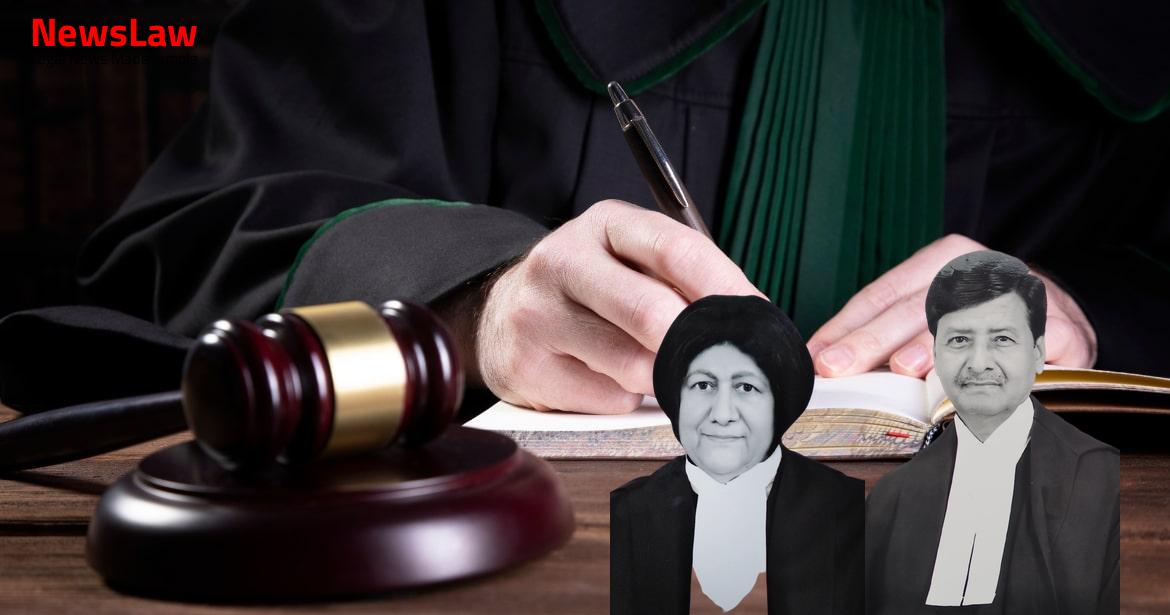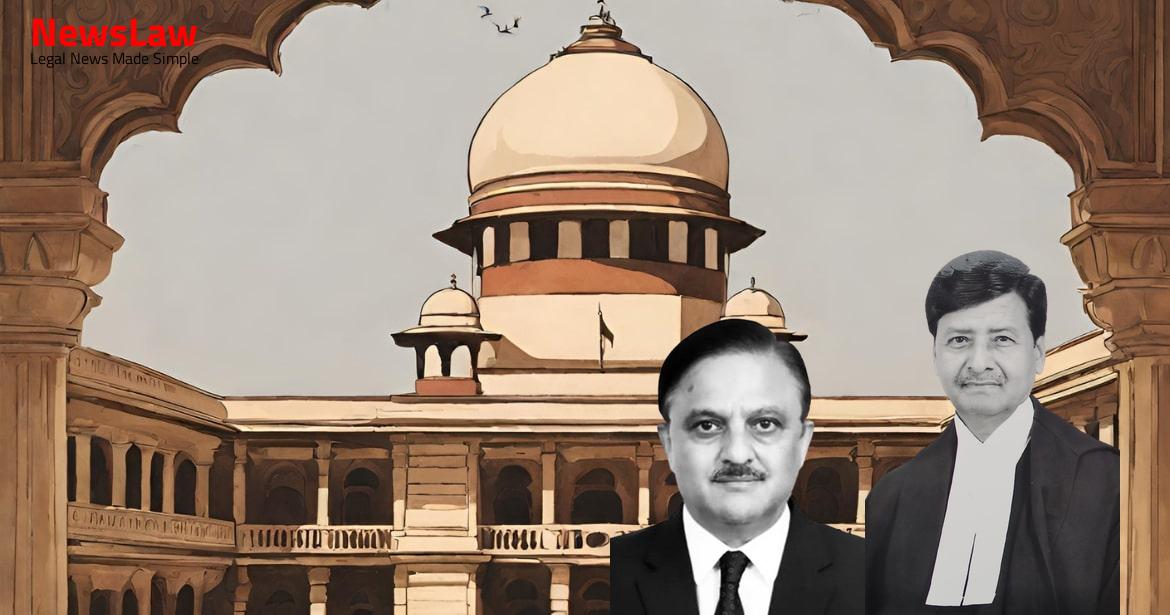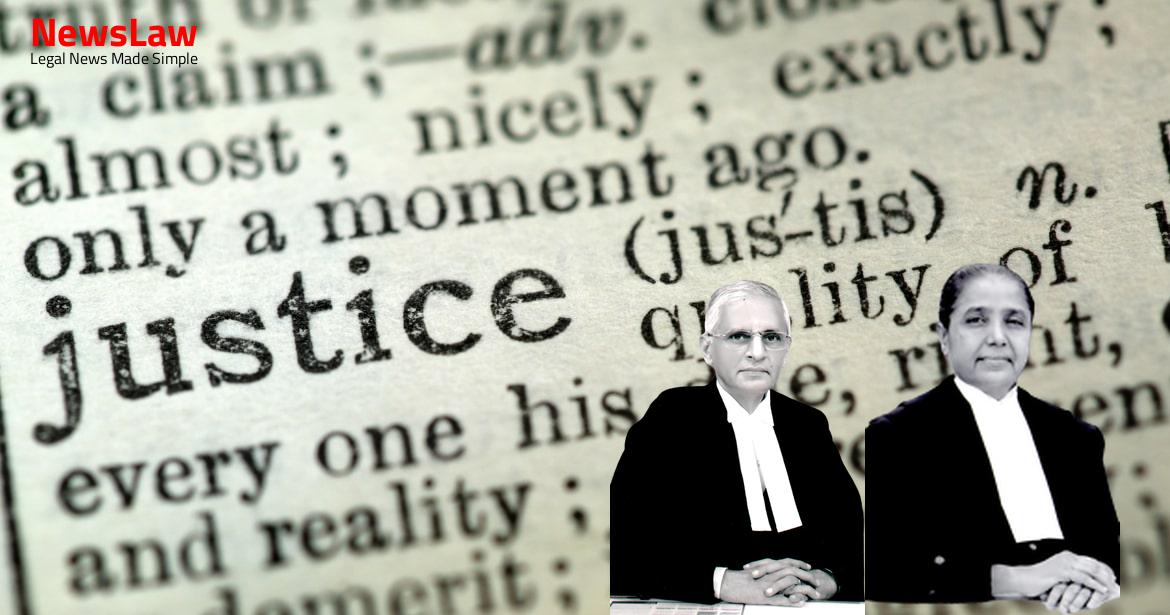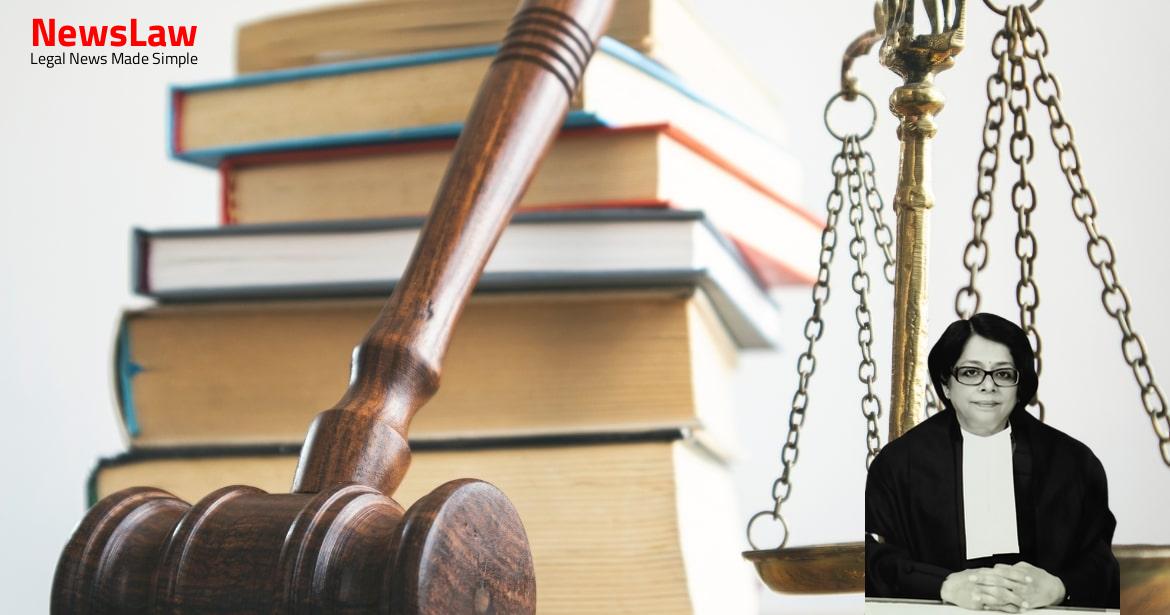In a crucial legal battle, the Supreme Court has ruled in favor of upholding the High Court’s decision on the calculation of retiral dues. The case involved the determination of retiral benefits for the late Shri Amardeo Tiwari. Stay tuned to learn more about this important judgment!
Facts
- Shri Amardeo Tiwari, the husband, was appointed as a Junior Engineer in the Public Works Department in August 1958.
- He was promoted to the post of Temporary Assistant Engineer on an ad hoc basis in September 1981.
- Amardeo Tiwari was regular promoted to the post of Assistant Engineer with the approval of the Bihar Public Service Commission in December 1994.
- He retired from service in June 1995 and passed away in May 2004, but his retiral benefits had not been determined or released till his death.
- His wife filed a writ petition in September 2004 seeking direction for the post-retiral benefits of her late husband.
- The High Court disposed of the writ petition along with 20 other similar cases in September 2004.
- The High Court directed the authorities to finalize the family pension of Amardeo Tiwari, taking into account his notional salary at the time of retirement in June 1995.
- The appellants argue that this direction by the High Court modified the original judgment in the writ petition.
- The Commissioner and Secretary of Road Works Department in Patna passed an order on 24.2.2006, promoting Sh. Amardeo Tiwari to Assistant Engineer in 1980.
- Cash payment for unutilised earned leave of Sh. Amardeo Tiwari was sanctioned on 10.2.2005 by the Engineer-in-Chief-cum-Additional Secretary of Road Construction Department in Patna.
- Provisional pension and gratuity were sanctioned for Sh. Amardeo Tiwari based on his continued designation as Junior Engineer, even after his retirement which occurred on 30.05.2004.
- It was noted that Amardeo Tiwari remained absent from the office without permission from 16.04.1980 to his retirement date of 30.06.1995, during which he did not contribute at the Assistant Engineer post.
- Orders were given on 21.9.2004 to redress the grievances of the petitioner by fixing his pension and gratuity based on his service as a Junior Engineer due to his continuous absence from the Assistant Engineer post.
- After subsequent writ petitions and court orders, provisional pension and gratuity were finally sanctioned to the petitioner on 6.11.2004 by the Executive Engineer in Chapra, Bihar.
- The High Court gave directions on 19.09.2003, with further modifications on 21.9.2004, to fully address the grievances of the petitioner, leading to the compliance with the court’s orders.
Also Read: Verma v. IIT Roorkee: Landmark Compensation Judgement by Supreme Court of India
Arguments
- Appellants argued that as per Rule 58(a) of the Bihar Service Code, a government servant is entitled to pay and allowances from the date of assuming duty in the post.
- They claimed that pay and allowances should cease when the duties are no longer being discharged.
- ASG Mr. Vikramjeet Banerjee contended that the High Court erred by expanding the original order in contempt proceedings.
- He also mentioned that the High Court overlooked Rule 58 and Rule 76 of the Bihar Service Code.
Also Read: Acquittal of Accused in Dowry Harassment Case: Supreme Court Judgment
Analysis
- The High Court found that the dues for Shri Amardeo Tiwari should be based on the salary of the post of Assistant Engineer
- Rule 58 states that after five years of continuous absence, a government servant ceases to be in employment
- No disciplinary proceedings were taken against Shri Amardeo Tiwari for continuous absence
- The High Court’s order was to fully redress the grievances and release the retiral dues of Shri Amardeo Tiwari completely
- There were two promotion orders for Shri Amardeo Tiwari, one ad hoc and one regular
- It is unlikely that a second promotion order would have been issued if Shri Amardeo Tiwari had not joined the post
- The authorities should not circumvent the High Court’s order by releasing provisional pension based on a lower post’s salary
- It is improbable for a person to suddenly stop attending duties upon promotion to a higher post
- In contempt proceedings, the High Court can pass orders for effective enforcement of its orders
- In a case where a deceased individual had been promoted, the High Court directed the calculation of family pension based on the notional salary of an Assistant Engineer at the time of retirement.
- The High Court did not accept the late argument that the deceased individual had been absent.
- The High Court did not modify or expand on any earlier order but rather enforced it by directing the calculation of dues based on the position the individual was promoted to.
- The direction given by the High Court was within its legal right and was focused on ensuring proper enforcement of the earlier order.
Also Read: The Complete Chain of Circumstances – Upholding the Conviction of the Appellant
Decision
- The judgment and order of the High Court under appeal were not found to have any grounds for interference
- The Court found no reason to overturn the decision of the High Court
- The High Court’s judgment and order were upheld by the Court
Case Title: STATE OF BIHAR Vs. MEERA TIWARY
Case Number: C.A. No.-009750-009750 / 2010



